Haru Military Equipment
[[Main Page]] ===Armaments===
Submachine guns
| MSG-01 | 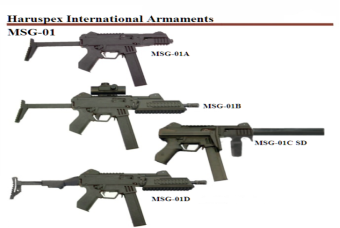
|
Submachine gun | 10mm +P+ class 7N31 AP | 30- or 50-round magazines. The MSG-01 models are in use with the HIL in a variety of roles. Generally special forces, and armored vehicle crews. |
Rifles & Etc
| HBAS Series| The HBAS Bullpup Assault System | 
|
Bullpup Assault rifle | 6.8mm +P+ class 7N31 AP | Made of a rugged, high impact polymer, most of the manufacturing is done utilising CNC machines, with ultrasonic welding for the steel-reinforced receiver halves and the gun barrel being cold hammer forged. It's operating system, boasts a higher reliability over the CBAR's and a lower recoil. The translucent 30 round magazine allows precise assessment of current ammo load to it's operator. The HBAS makes use of 6.8mm +P+ class 7N31 AP (Is compatible with 6.8 SPC rounds) The main draw point is that the HBAS and variants provides carbine length, but rifle muzzle velocity. The bullpup design is also used to minimize the silhouette of soldiers and to maximize effectiveness in turning corners in urban warfare. |
| GAR-01B | 
|
Bullpup Assault rifle | 6.8mm +P+ class 7N31 AP | The GAR-01TB (Gazelle Automatic Rifle) was developed in Runic by the Tenaldunyda uv Semedyno Ehticdno (Directorate of Military Industry - TSE), and was first displayed to public in 2006. Highly reliable, the weapon has been built to withstand severe conditions and be easy to maintain. It's ambidextrous design makes it easy to reload and operate as well. Magazines are equipped with winding handle, so they can be stored loaded and with unwound spring, to avoid loss of spring tension during the storage time. When required, magazine spring can be quickly wound up by rotating the handle to prepare magazine for firing. Magazines hold 125 rounds in a relatively compact package. |
| ACS-01 | 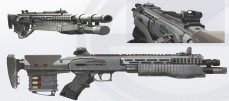
|
Shotgun | 19.5x76mm | In the early 1980s a program called BUAWS (Bullpup Urban Assault Weapon System), was begun under a joint venture with Verlaine Corporate Industries and that of Haruspex International Armaments. The main goal of this programme was to develop a new generation personal firearm, capable of firing high-impulse, multiple projectiles with effective range of 100-150 meters. Using of the multiple projectiles should increase the chances of hitting the target in combat.
The ACS-01 is a bullpup select-fire, smooth-bore weapon, designed to fire special, high-pressure shotshells, loaded with tungsten buckshot or flechettes. CUAWS researchers developed and utilised a patented recoil-operated action with moving barrel and additional, self-regulated gas assist system (used to help unlock breechblock from the barrel if low-power ammo is used). The main goal of this system was to decrease felt recoil down to suitable level. The ACS-01 shotguns are gas-operated, semi-automatic weapons that use long-stroke gas piston located above the barrel. Gas system is fitted with two-position manual gas regulator, to provide reliable functioning with standard magnum (76mm) ammunition. Barrel is locked by rotary bolt. Barrel bore and action are chromed to provide better corrosion resistance. Barrels can be fitted with optional interchangeable chokes. Feed is from detachable drum magazines, holding 30 rounds or stick mags of 10 rounds. Standard furniture includes a long front and either a butt with integral semi-pistol grip or separate pistol grip and side-folding polymer butt. Standard sighting equipment includes a rifle-type rear sight at the front of receiver and a front sight above the gas block. Some version can be fitted with side rail on receiver which can accept mounts for red-dot or other sights. |
| CCNML-01 | 
|
Anti-Personnel rifle | 12.7x54mm special subsonic | The 12.7mm CCNML-01 (Cbaleym Cheban Nevma, mynka lymepan - special sniper rifle, large caliber) supressor sniper rifle is one of the most recent creations of Verlaine Corporate Industries Instrument Design Bureau (ETP). Developed in around 2002 on special request from the Esbaneis Calinedo Canjelac (ECC - "Imperium Security Services"), this rifle was first shown to general public only in late 2005, during arms exhibition FAS 2005 in Prathen. This rifle is said to be in use only by special elements of the ECC and the military legions, which conduct anti-terror and high importance anti-crime operation. Accuracy is claimed as 1 MOA at 100 meters range with precision bullets, and maximum effective range is given at 600 meters. High penetration bullet can defeat Imperium Class 5 (US NIJ Type III / High-Powered Rifle) body armor at 100 meters or 16mm steel plate at 200 meters. The SA-01 cases are based on the .338 Lapua Magnum cases with straight (no neck), and a slightly tapered body. |
Machineguns
| GLM Series| The General Light Machinegun Series | 
|
LMG | 6.8x54mm Haruspex Imperium | The GLMshares in the same polymer construction and general appearance of many HIA weaponry styles. The weapon's receiver is made from stamped sheet steel, reinforced with welded and riveted machined steel inserts. Synthetics were also used (i.e. the handguards, pistol grip, buttpad and cheek rest were all fabricated from nylon). A railed handguard was also developed for the type. GLM prototypes were tested in 1996 and production was completed in 2004.
The GLM utilizes a system that is of a selective fire gas-operated design. The weapon uses ignited powder gases bled through a port in the barrel to provide the weapon's automation. The LMG uses a short-stroke gas piston system located above the barrel, which is fed gas through a three-position adjustable gas regulator. The first gas setting is used for normal operation, the second, for use in difficult environmental conditions and the third setting prevents any gas from reaching the piston, and is used to launch rifle grenades. The weapon uses a rotating cylindrical bolt that contains 7 radially-mounted locking lugs, an extractor and casing ejector. The bolt's rotation is controlled by a cam pin that slides inside a helical camming guide machined into the bolt carrier. The family is built in a traditional layout (the magazine is in front of the trigger), with a rear-mounted pistol grip. The main advantage of this type of arrangement is the overall compactness of the weapon, which can be achieved without compromising the barrel length, hence the overall length of the GLM-01 LMG is shorter than a carbine, but the barrel length is that of an assault rifle. The GLM-01 is hammer-fired and has a trigger mechanism with a fire-control selector that enables semi-automatic fire and fully automatic fire (the fire selector lever is located at the left side of the receiver, just aft of the helical magazine). A cross bolt type safety prevents accidental firing and is located above the trigger; the "safe" setting blocks the movement of the trigger. The weapons are fed from a helical drum magazine, usually with a 225-round capacity, although a large ammo bag may be attached with a 500-round capacity. The magazine release button is placed above the magazine housing, on the left side of the receiver. When the last cartridge is fired from the magazine the bolt and bolt carrier assembly lock to the rear. The GLM-01 LMG also features a barrel with a slotted flash suppressor. |
Infantry Support
| ASRHS-2| The Airborne Short Rifled Howitzer Series 2 | 
|
Artillery | 75 mm | This weapon is a short-rifled howitzer without a recoil or counter-recoil system, mounted on a light aluminum alloy carriage. A funneled (Venturi) tube is attached to the rear of the bored breechblock; its function is to allow the gases to disperse to the rear, thus eliminating a recoil mechanism.
The firing mechanism is seated in a cone-shaped receptacle and centered in the breechblock by vertical struts. The weight of the complete gun is reduced to a minimum by using hollow machined parts, plastic washers, tubular carriage, and aluminum alloy body. Because of the weight of the complete piece, it lends itself to use by airborne troops. |
| 9M-Zylgym (Jackal) MPS| 9M-Zylgym (Jackal) Man Portable System | 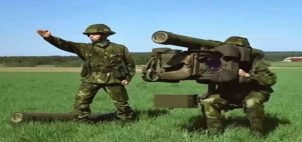
|
Manportable/Vehicle mounted surface-to-air missile | 3 kg HE fragmentation with contact and proximity fuzing | The effectiveness of the 9M1 missile against air targets is attributed to the increase weight of the explosive in the missile's warhead and to the impact/proximity fuze enabling the missile to kill the target both in the event of a direct hit and when it passes at a distance of up to 1.5 m from the target.
The set comprises a universal launcher module for one to four missiles, control and communication equipment, one remote control box, checkout equipment and maintenance kit. The 9M-Zylgym systems can be mounted on ground-based, airborne and sea based platforms. Its full-reloading time is 4 min, loaded launch unit weight - 70 kg, control equipment weight - 24 kg. The launch unit of this system is mounted on tracked or wheeled-type chassis and can be employed in a portable version utilizing a tri-pod setup. |
| Anti-Personnel Mine| The SM-01A " Cbetan " (Spider) Mine | 
|
Mine | Warheads vary, but are generally 1kg | The Cbetan Smart Mine (Spider) is more of a “remote explosive device” than a typical lay-and-forget land mine. It’s detonated by soldier command, and that soldier can even load non-lethal canisters if the mission calls for it. Unlike conventional land mines, the CM-01A Cbetan always has a known location, so it can be safely and easily recovered and redeployed. If that isn't possible for some reason, CM-01A units deactivate after a set time period, so they won’t become a future threat. It's capabilities are badly needed in places like remote fire bases, and or border defensive areas.
A CM-01A Cbetan system consists of up to 63 Munition Control Units (MCUs). They are set up by humans, unlike some land mines that are fired into place using artillery, mortars, or rockets. Each MCU can contain up to 6 reloadable canisters spaced around the device, each of which covers a 60 degree arc to create full 360 degree coverage. Payloads can be anything from Claymore-style steel balls or fragments, to non-lethal gasses or goo. |
Military Utility Vehicles
| FS-42| The FS-42 Tank Hauler | 
|
Logistics | 234 Vehicles | With the introduction of the S-98 Myht Fumv (Land Wolf) Main Battle Tank into service, the Haruspex Legionary's existing tank transporters were unable to carry the load. A contract was therefore awarded to the Heavy Vehicle Research Laboratory, in conjunction with Haruspex International Armaments to develop and manufacture a new heavy duty tank transporter which emerged as the FS-42/LVTS (Logistics Vehicle Transport System).
The FS-42/LVTS (Logistics Vehicle Transport System) is a powerful tractor truck with an 6x6 drive configuration and advanced features such as an electronic engine control system to ensure maximum efficiency at all times, and an 'air ride' rear suspension to ensure all axles remain in contact with the ground at all times while smoothing out the worst round terrain shocks to the chassis frame. To assist traction further, across rough terrain, another standard feature is a central tyre inflation system (CTIS). Unlike the previous transporters the FS-42/LVTS is designed to carry both the tank and its crew. |
| H17| The H17 3.5-Ton Cargo Truck | 
|
Logistics | 6,000 Vehicles | Various versions of the H17 3.5-Ton LTV are available. These have various wheelbase lengths ,height, cab type, body type and payload capacity. Payload capacity is ranging from 1,100 kg to 3,425 kg, depending on the version. Gross vehicle weight ranges from 3 500 kg to 6 000 kg.
A baseline 2-door cab accommodates driver and one passenger. The cab has an integrated roll-over protection. The H17 3.5-Ton LTV can be also fitted with a 4-door crew cab. This vehicle has a capacity to carry from 2 to up to 15 seated troops, depending on the version. Vehicle can be fitted with add-on armor kit. |
| Vannad| The HIA Vannad (Ferret) MUV | 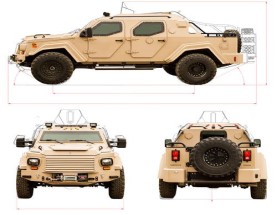
|
Military Utility Vehicle | 4,000 Vehicles | It is designed to be used in combat areas or during peacekeeping operations. It was designed around the success of the Rihdan (Hunter) mine resistant ambush protected vehicle. The Haruspex Colonial Legionary plans to replace it's fleet of Rihdan's with the Vannad. Armor of the Vannad was developed by Haruspex International Armaments. Vehicle armor provides protection against small arms fire, artillery shell splinters, landmines and IEDs. Vehicle has a V-shaped hull. The Vannad can be fitted with add-on armor kit for increased protection. This add-on kit can be fitted or removed in field conditions within 30 minutes without using any special tools. The Vannad is a smaller supplement to mine resistant ambush protected vehicles. |
| Rhidan| The Rihdan (Hunter) LMV | 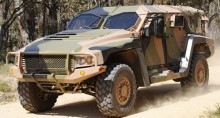
|
Light Multirole Vehicle | 2,000 Vehicles | The Rihdan (Hunter) Light Multirole Vehicle was an innovative tactical vehicle, developed to reduce threat posed by improvised explosive devices and landmines. Vehicle uses modular armor packs and has a collapsible V-shaped floor, which deflects mine blasts. Seats are attached to a roll-bar rather than floor. The Rihdan LMV is more survivable than conventional light utility vehicles and trucks. |
IFV's & APC's
| LAV-25| The Jeban (Viper) Variant | 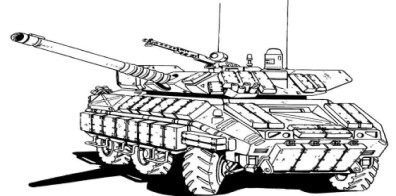
|
IFV | 1,725 Vehicles | The Jeban IFV is fitted with a VCI 105b three-man turret, armed with a 105-mm low recoil rifled gun. This turret is compatible with standard WA 105-mm ammunition, including APFSDS rounds. The VCI 105b turret is a fully-stabilized gun, which gives it fire-on the move capability and enables to engage stationary and moving targets with a high first round hit probability. A total of 35 rounds are carried inside the vehicle, 12 of them are stowed inside the turret and are ready to use. Secondary armament consists of coaxial 12.7-mm machine gun and stub recoiless rifle remote weapon system so as to reduce crew exposure to hostile elements. The Jeban is slowly phasing out the S-11 IFV as the main vehicle of the HIL. |
| S-11| The S-11 Infantry Fighting Vehicle | 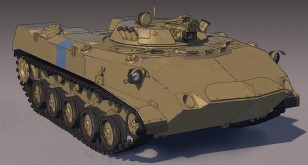
|
ifv | 450 Vehicles | The S-11 is lighter compared with most modern IFVs, as it was designed using composite materials to save weight wherever possible. The S-11 used composition multi-layer armor with glass fiber, ceramic and aluminum alloy. The front arc provides protection against 30-mm armor-piercing rounds and all-round protection against 14.5-mm armor-piercing rounds. The vehicle is also fitted with automatic fire suppression and NBC protection systems. The S-11 can be also fitted with active protection system, similar to that used on the HIA S-94a Jelduno (Victory) Main Battle Tank. |
| S-12| The S-12 Half Track Series Armored Personnel Carrier | 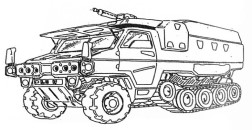
|
APC | 525 Vehicles | The S-12 is a continued success as an armored personnel carrier, alongst with it's other variants. It is air-transportable, and is able to be quickly moved where it is needed. Its variable armor system provides the adequate armor protection for the given situation. The speed of the APC allows it to dismount its infantry to engage light targets and then quickly vacate the area.
There are four main models (A through D), which forms the basis for at least 24 variants. The initial idea was for a vehicle that could be used to transport a single squad of legionary to the battlefield protected from enemy small arms fire, and with some protection from artillery fire. In addition, the standard mounting of a remote turret allows the vehicle to provide support by fire for the infantry squad once they have disembarked in battle. |
Tanks
| Main Battle Tank| The S-98 Myht Fumv (Land Wolf) | 
|
MBT | 2,200 Vehicles | The defense system as with the S-96 MBT, includes a laser warning receiver (LWR - the dome-shaped device on the turret roof behind the commander's position), that warns the crew that their tank is being illuminated by an enemy range-finding or weapon-guidance laser. The turret of the tank can then be traversed to face the direction of the enemy threat, and the laser self-defense weapon (LSDW - the box-shaped device on the turret roof behind the gunner's position), can be employed against the source of the enemy laser. The gun derived from the Type-3655 smoothbore of the prototypes that went through the proving grounds has been adopted, the Type-3700 140L40 is a 135mm weapon scaled up from the older Type-3655 design. The new gun allows higher muzzle velocities, as well as larger projectiles and gun launched anti-tank guided missiles. The Type 998-X16A autoloader system has been also upgraded to Type 998-X16B standards to keep up with the main gun. |
| Light Tank| The Rubmeda (Hoplite) Light Tank | 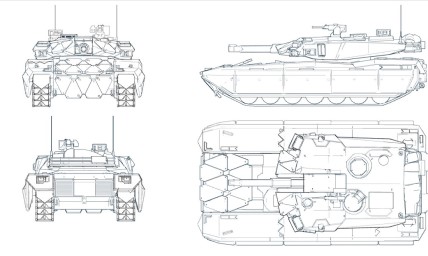
|
LST | 151 Vehicles | The Rubmeda is a capable Light Support Tank. It can be airlifted as well, expanding its abilities to serve the HIL and associated countries of operation.
The main armament is the HIA manufactured 11A-2 105 mm gun which fires APFSDS, APDS, HEAT, HESH, HE, smoke and canister rounds. A muzzle system is fitted which allows rapid compensation to be made for barrel movement due to changes in temperature. |
Anti-Personnel/Tank
| S-17| S-17 Anti-Personnel/Light Armor Vehicle | 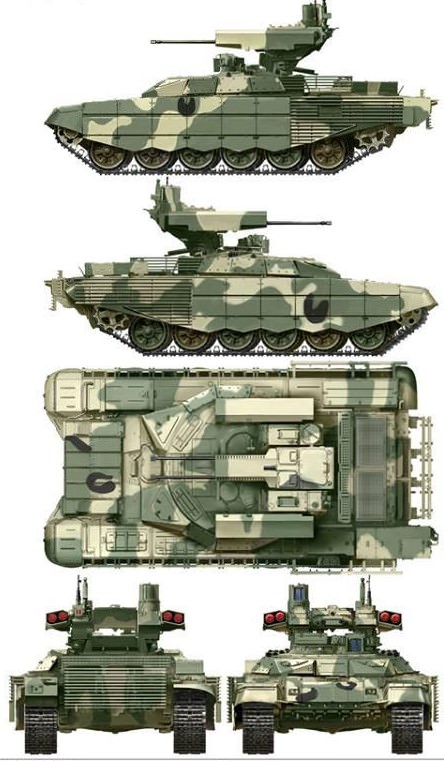
|
APT | 750 Vehicles | When used in urban terrain, the S-17 is employed on a 2 to 1 ratio, meaning two S-17's protecting one MBT. In rural operations that ratio is reversed, i.e. one S-17 protecting two MBTs. This results from the complexity of fighting in urban terrain and the need for a versatile anti-personnel machine that can engage multiple targets at once and on different height levels. The introduction of such a vehicle makes urban fighting less stressful on tanks and can relieve them of some of the workload so that they can concentrate on their main objective of engaging other tanks and hardened targets.
A new mount is equipped with two OWS-25R 25mm dual-feed cannon with a cyclic rate of fire of up to 600 rds/min. A total of 4200 rounds of ready use ammunition can be carried. The cannon can fire a wide range of ammunition types including: High Explosive - Tracer (HE-T), Armour-piercing discarding sabot (APDS), High Explosive Fragmentation (HE-FRAG) and Armor-Piercing - Tracer (AP-T). A dual setup of the GL21 automatic grenade launchers, followed by a singular HIA K1-2b 12.7mm HMG. A total of four launchers for the anti-tank guided weapon (ATGW) which can fire various types of warhead, are mounted on either side of the main armament. These include a tandem HEAT warhead to defeat targets fitted with explosive reactive armour. To enable targets to be engaged under day and night conditions when the S-17 is stationary or moving, a computerized fire-control system is fitted. |
| Q39| Q39 Nota'man (Devil) Tank Destroyer | 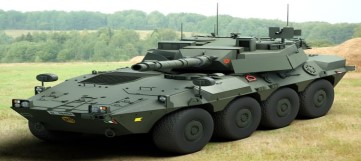
|
Anti-Tank | 250 Vehicles | The Q39 Nota'man (Devil) is fitted with a fully-stabilized HIA 105-mm main gun. Despite it's relatively small caliber this gun penetrates front armor of the most widespread tanks of that are fielded within Eurth, at a range of 1500 meters. Vehicle is fitted with a modern fire control system. The Q39 Nota'man (Devil) tank destroyer has a good fire accuracy at a range of 1000 meters in day or night conditions and while firing on the move.
The Q39 also has three other variants including; 76mm Tank Destroyer, Self-propelled anti-aircraft gun platform. Armed with 30mm gatling cannon, and a self-propelled air defense missile system. Armed with dual launchers, 4 tubes of R4 Anti-Aerocraft missiles. |